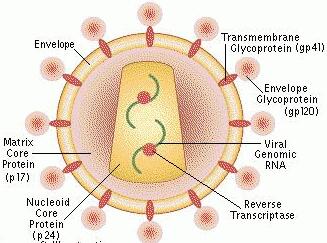AIDS vaccine failure sends researchers back to Square One
 MSNBC has an excellent article today about the failure of Merck's AIDS vaccine and what it means to public health and medical research. Robert Bazell, NBC News's chief science and medicine correspondent, writes the following:
MSNBC has an excellent article today about the failure of Merck's AIDS vaccine and what it means to public health and medical research. Robert Bazell, NBC News's chief science and medicine correspondent, writes the following:
Indeed the vaccine development world is now in a state of stunned shock since the trial that many believed had the greatest chance of success was halted. At this point, it looks like an AIDS vaccine remains decades away, if one is ever to be found
Merck’s experimental vaccine did not simply fail to protect people. There were more infections among men who got the vaccine — 49 out of 914 — than those receiving a placebo — 33 of 922. There is no way the vaccine itself could have infected people. But the results raise the frightening prospect that the vaccine actually increased people’s chance of getting infected through sex or injection drugs. (bold mine)
“I don’t want to be Pollyanna and I don’t want to be Chicken Little. But we could have a very serious problem,” said Dr. Anthony Fauci, director of the National Institute of Allergy and Infectious Diseases.
I found the following paragraphs to be interesting, if just coincidental, for the discussion of an old virus come back to haunt us -- adenovirus.
But what happened among the mostly gay male volunteers? Merck’s vaccine combined three proteins produced by the AIDS virus with a modified form of a virus that causes the common cold (adenovirus 5). (bold mine)
Preliminary analysis of the data finds that those who became infected with HIV mounted the strongest immune reaction to the adenovirus. This could be a fluke with this adenovirus. But it also could be something far more significant.
Bazell concludes his remarks with this paragraph:
But meanwhile we do know that treatment works well for those who are infected, and old-fashioned prevention efforts keep people from getting infected in the first place. Perhaps it is time to re-think the priorities. (bold mine)
HIV/AIDS is preventable. With the exclusion of those unfortunates who get infected unknowingly from spouses and partners who are unfaithful, or from tainted blood or organs, the application of simple common sense is a powerful agent against this pandemic disease.

Reader Comments